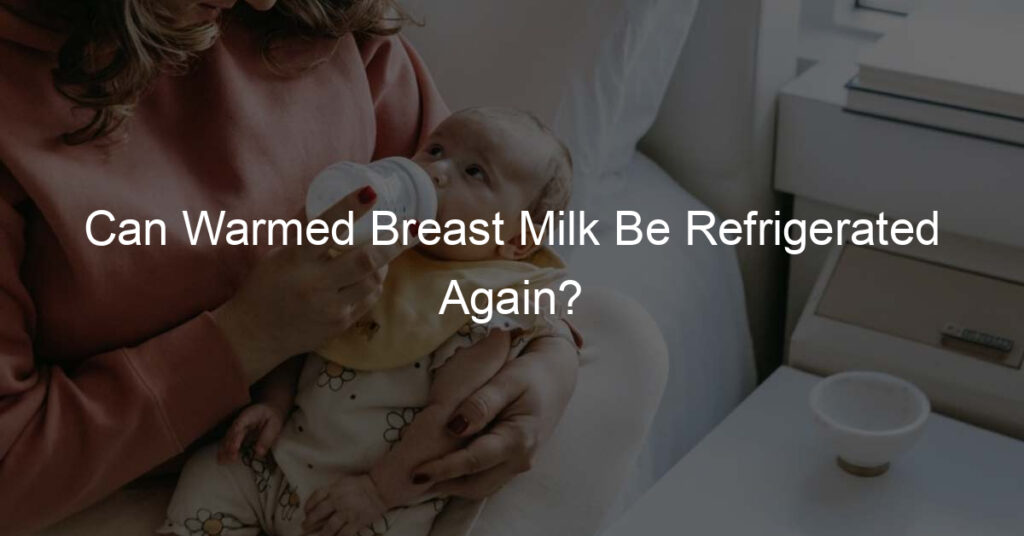The world has gone mad when it comes to food, with many foods now being either labeled or treated as quasi-perishables. In an effort to extend the shelf life of their products and prevent spoilage, manufacturers have been freezing, refrigerating, and even labeling their products as perishable goods. However, there are a few people who can’t seem to let this one go.
That’s right – we’re talking about breast milk here!
If you’ve ever wondered why refreezing or storing your pumped milk hasn’t really worked out in the end for anyone involved, then you’re not alone. This is due in part to the fact that while human breast milk is generally considered to be sterile (meaning there aren’t any pathogens present), it isn’t thoroughly sterilized by standard practices used by many formula makers and baby food manufacturers. Therefore, if anything that passes through your nipple does so into your bloodstream intact, which it usually does if you pump several times per day for a couple of weeks or more – which means any bacteria present in your milk will multiply rapidly once it reaches room temperature again.
Even though this may seem like an insurmountable problem at first glance (at least from a practical standpoint), new developments have given us hope that this may be changing sooner rather than later. After all, what kind of parent doesn’t want their surplus breast milk to benefit others instead.
Can You Reuse Breast Milk After It Was Warmed Up?
You can reuse your breast milk after it is warmed up, but there are some precautions you should take. First of all, make sure that the milk is still warm when you’re ready to use it. If it isn’t, then it may not be safe to use. Also, don’t freeze the milk and then thaw it out before use. This will only introduce bacteria into the mix, which would multiply rapidly if the milk were ever allowed to reach room temperature again.
Additionally, while most experts agree that pasteurization is an effective way to eliminate unwanted microorganisms from cooled breast milk, there are a few dissenting opinions on whether this treatment is necessary for all of your pumped milk or just for those that are being stored long-term (i.e., greater than 2 weeks).
The truth of the matter is that this treatment does kill any existing bacteria in your milk, so eye infections and other problems caused by the contaminated formula are eliminated with pasteurization as well – which makes sense considering that we often deal with these types of infections in babies who have consumed contaminated formula in their first months of life.
Can You Warm Up Refrigerated Breast Milk Twice?
Now, new developments in the world of milk have given us hope. It’s been shown that certain bacteria strains are more sensitive to low temperatures than others, and some bacterial strains can actually be killed by relatively low-temperature treatments. So, if you store your breast milk at a temperature below the freezing point for an extended period of time, it may eventually kill off any unwanted or potentially harmful bacteria present in your milk. Additionally, certain species of beneficial Lactobacillus bacteria exist naturally in breast milk and are particularly salubrious when it comes to infant nutrition.
With this knowledge in mind, one might be able to use refrigeration and general food safety practices to keep their breast milk fresh for more extended periods of time.
This is still being studied, but it’s good news nonetheless! More research is needed before we can prove that this will make a significant difference in how long human breast milk lasts before spoiling. However, it seems worth trying since there are benefits either way!
How Long Can Breast Milk Stay Out Of Fridge?
It’s important to note that the length of time breast milk can stay out of the fridge depends on a lot of different factors, including how often you pump and the type of milk being stored. For example, if your milk is high in protein and fat content, it will stay fresh for up to six months or more. If your milk is low in protein and fat content, it’ll last about four weeks once it’s been removed from the fridge.
What To Do With Leftover Breast Milk In A Bottle?
If you’ve been pumping and storing your breast milk in a bottle, then you might be wondering what to do with the leftover milk once it’s expired. There are actually several options. You could freeze it in ice trays, use it as a portion of DIY baby food, feed it to animals, or just throw it away if you don’t have enough storage space.
What about the option of saving it for later? Well, that depends on whether or not you have an extra fridge. For those who do, then by all means freeze your milk until needed again!














